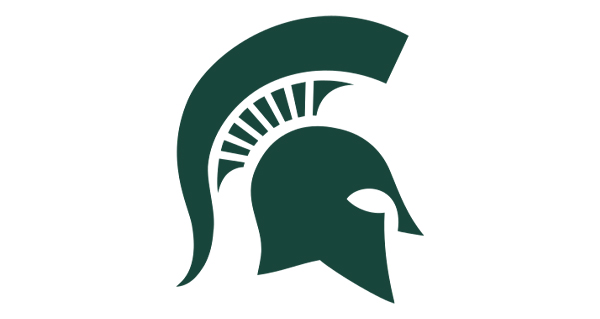Adreian Payne doesn’t have the upside of some of the players at the top of the draft, but he is as ready as any to make an immediate impact as a rookie. He’s part of a vanishing breed - a senior who improved in each of his four seasons in college and doesn’t need to be developed much in the NBA. Payne is one of the most complete big men in the country and his skill-set can improve every team in the league. It shouldn’t take long for his name to come off the board.
Payne is coming off a dominant season at Michigan State, where he averaged 16 points, 7 rebounds and 1 block a game on 50% shooting. He was their best player on both sides of the ball - a defensive anchor in their frontcourt who could draw a double-team in the post and shoot the ball out to the three-point line. At 6’10 240 with a 7’4 wingspan, Payne is a stretch 4 with elite athleticism and prototype size for the position. He has a lot of Serge Ibaka in his game.
He’s not the shot-blocker Ibaka is, but his length makes him an extremely effective interior defender and he’s just as good a shooter from the perimeter. That combination of skills is what makes Ibaka such an incredibly valuable player, as the Oklahoma City Thunder are finding out in the Western Conference Finals. Ibaka makes everyone better on both sides of the ball and there’s no other big man on their roster who can come close to replicating his two-way impact.
With the vast majority of big men, you have to balance one side of the floor off the other. For the most part, defensive-minded centers are raw offensive players who can barely catch and finish around the rim, much less spread the floor and open up driving lanes to the rim. Conversely, most stretch 4’s are defensive liabilities, players whose lack of athleticism prevents them from matching up with their position who force their team to send help on defense.
A two-way big man is a force multiplier, a guy who improves your offense and your defense, which is the quickest way to improve your team. When Ibaka is in the game, the Thunder have a foundational piece for an elite defense and an elite offense. You need multiple players to replace what he can do, which is a problem since you still only have five spots in a line-up without him. A jump-shooting shot-blocker is one of the most important skill-sets in the game.
Payne’s ability to play defense and shoot 3’s at 6’10 will improve any team he is on. Like Gorgui Dieng and Mason Plumlee in 2013, he’s slipping in the pre-draft process because of concerns about his age, but the rules for evaluating players have to be a little different for guys with their size. Imagine how effective Dieng and Plumlee would have been as rookies if they could stroke 3’s - Payne shot 42% from beyond the arc on 3 attempts a game last season.
He doesn’t have the upside to be taken in the Top 5 in a draft like 2014, but you don’t have to go too far down in the lottery to start finding teams that Payne would immediately improve next season. You can find a quality perimeter player in free agency, but the only way to acquire an athletic 6’10+ shooter like Payne is to draft him. He’s the ideal complementary piece for any young team trying to make a push to the playoffs and he won’t cost much money either.
Start with the Sacramento Kings at No. 8. With Isaiah Thomas, Rudy Gay and DeMarcus Cousins in the fold, they don’t need another player who needs the ball in his hands. As is, there aren’t enough shots to go around to fully develop Ben McLemore, their lottery pick in 2013. The Kings need a frontcourt player who can improve their defense without taking the ball away from their stars. If they trade the pick, they should be looking for a guy with Payne’s skill-set.
Jason Thompson is a solid NBA player, but he doesn’t have Payne’s length or athleticism and he can’t shoot 3’s. With so many elite PF’s in the Western Conference, Thompson is stretched as a starter, particularly next to a C with as many defensive issues as Cousins. Payne and Cousins, in contrast, would be a perfect mix on both sides of the ball. They would be one of the biggest and most athletic frontcourts in the NBA while still being able to space the floor.
At No. 9, Payne would make a lot of sense next to Al Jefferson for the same reasons he makes sense next to Cousins. For the Orlando Magic and Philadelphia 76ers, two teams who should be able to grab a franchise player in the Top 4, Payne would be a great complementary piece in their frontcourt. He would space the floor for Nerlens Noel in Philadelphia and he would help Nik Vucevic with interior defense in Orlando. He’s a good fit on almost any team.
A player with Payne’s length, athleticism and shooting ability is inherently valuable. In the modern NBA, teams have to decide whether they will play 4-out or with two post players. Payne gives his team the best both of both worlds - the floor spacing of a 4-out offense and the interior defense of a two-post team. Upside isn’t everything, especially for teams looking to win now. If he doesn’t get any better, Payne will still have a 10-year career as a starter on a good team.



